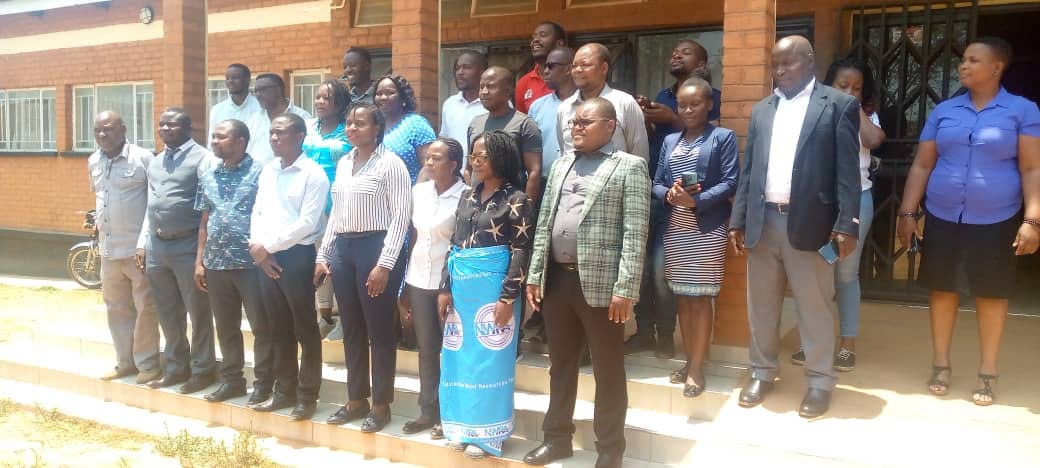NWRA Sensitizes Mchinji DEC on Water Resources Management
Senior Civic Education and Public Relations Officer Masozi Kasambala said DEC is crucial as it assists in development planning and monitoring and evaluation of development plans for the district.
MCHINJI, Malawi — The National Water Resources Authority (NWRA) has embarked on a sensitization campaign aimed at sensitizing District Executive Committee (DEC) members on its mandate and functions, writes Gerald Fanuel.
Speaking during a DEC meeting on Thursday, October 12th, at Community Hall in Mchinji district, Senior Civic Education and Public Relations Officer Masozi Kasambala said DEC is crucial as it assists in development planning and monitoring and evaluation of development plans for the district.
"DEC is very important as it is responsible for district-level development planning and monitoring and evaluation of development projects and programs. Hence, it is important for them to have access to the mandate and functions of the NWRA," he said.
Kasambala added that there is an influx of illegal water supply resources in Malawi, which has impacted water resource management, yet water is what is driving Malawi's Vision 2063's three pillars of agricultural productivity and commercialization, industrialization, and urbanization.
Therefore, Kasambala continued, DEC which assists in setting priorities, identification and assessment of community needs and project proposals is an important player to trickle down the message to the last person.
"The NWRA is mandated to provide for the management, conservation, use and control of water resources and for the acquisition and regulation of rights to use water, hence, no water projects should start without authorization from NWRA," he said.
"We have embarked on sensitization campaign to ensure people are not fined for not complying with existing laws and regulations governing water resources," said Kasambala.
NWRA has, therefore, issued a 90 days ultimatum to all those that have illegal water supply resources to report to NWRA and get a license. Otherwise, the authority will be left with no option but to follow any available means to get people to comply if the deadline of 24 November passes.
Speaking to AfricaBrief¹, Mchinji Director of Health Service and Development, who speaks for Mchinji District Commissioner, Dr. Yohane Mwale said the message has come at a good time as people are preparing for rain season.
Mwale said with NWRA mandate, it will help people to start using clean and safe water as they will be following good procedures provided and regulated by NWRA.
"As the country is going towards rain season, waterborne diseases like cholera are rampant and if the mandate is implemented in timely manner, many of the waterborne diseases may be reduced," he said.
In an interview, Mchinji District Environmental Officer, Solo weighed in that if water resources are regulated as per mandate of NWRA, most of the problems that we have today could have been reduced.
He, therefore, sees the implementation of NWRA mandate as a step towards sanitizing water resources which is one way of conserving the environment.
NWRA was established by the Water Resources Act (2013)² with the mandate to provide for the management, conservation, use and control of water resources and for the acquisition and regulation of rights to use water.
It, therefore, seeks water resources (unregistered boreholes, water reservoirs, fish ponds/dams, wells of more than ten meters deep, pumping water to irrigate a land of more than 0.5 hectares of land) owners to register and get NWRA license.



